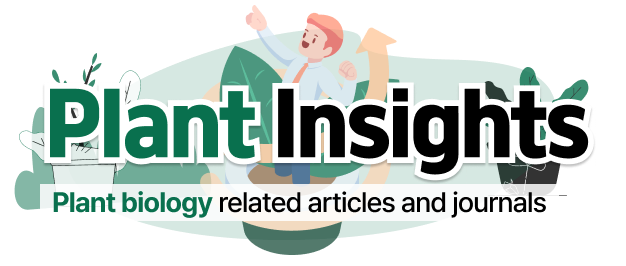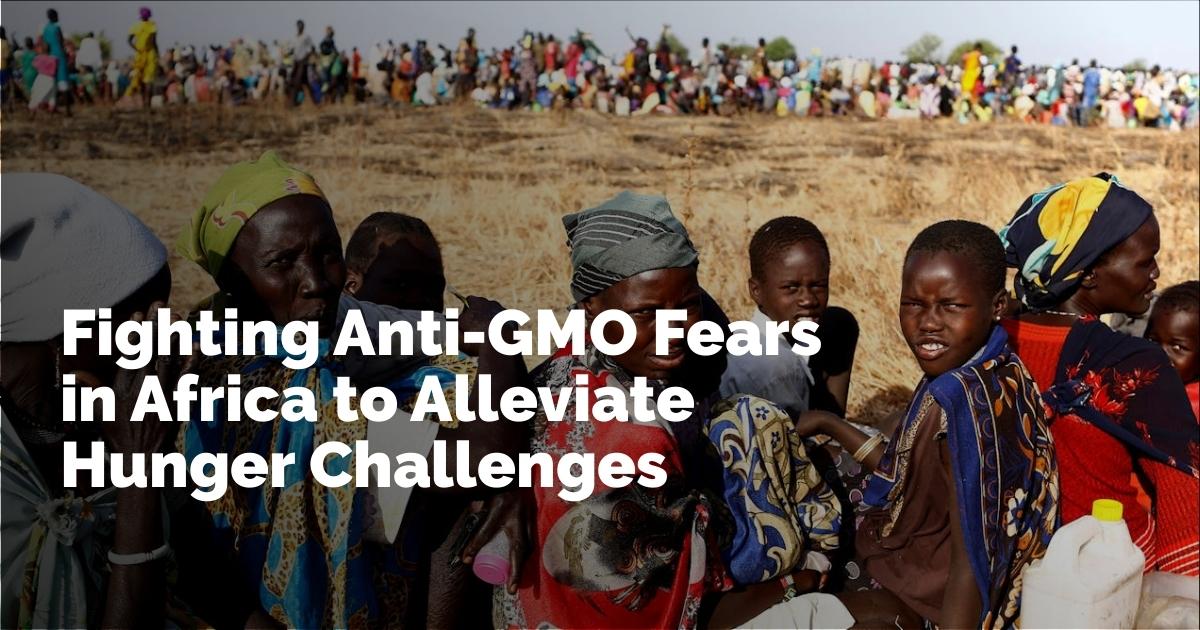I fight anti-GMO fears in Africa to combat hunger
Growing up amid hunger in the rural landscapes of Tanzania, the vision I carry today as a plant physiologist was born. The memories of walking barefoot to school, eating only one meal a day, and assisting my mother with farming chores have shaped my commitment to fighting hunger in Africa. The absence of effective methods to safeguard our crops from droughts, pests, and diseases occupied conversations in my mother's daily routine. Back then, as a child, I was too young to grasp the complexities of agricultural challenges or potential solutions. Yet, the desire to find answers took root in my heart, eventually guiding me to a career aimed at utilizing cutting-edge technology to boost crop yields and improve nutrition for smallholder farmers across Africa.
The journey that led me here started in an undergraduate genetics class. I explored the domestication process of maize, a discovery that would fuel my passion for plant sciences. Ancestral maize offered kernels unlike the types we consume today, and it was through thousands of years of selective breeding that this staple crop developed its current form. This historical understanding piqued my interest in plant genetics, and I recognized the potential of breeding techniques to enhance crop yields and resilience against environmental hardships. However, the global anti-GMO sentiment still threatens whether these advanced crop varieties will ever benefit farmers like my mother.
Humanitarian Experiences in African Nations
Embarking on my career path, I encountered various humanitarian issues during my work for UNICEF in Zimbabwe between 1999 and 2000. The gravity of food insecurity was inescapable in regions plagued by drought, affecting numerous families who yearned for food aid. I clearly recall meeting a young single mother whose story underscores my commitment to combating hunger.
In her village, an area struck hard by arid conditions, securing food was a daily struggle. Observing her daughter, a mere toddler, enjoy a modest serving of porridge amidst swarming flies—likely her only meal of the day—was a striking moment. Despite their dire circumstances, this little girl appeared content, a vivid contrast to the harsh reality around her. This sight deepened my resolve to tackle the intertwined issues of poverty and hunger. The magnitude of the problem, affecting thousands of children across the area, was a compelling motivation to devote my life to making a difference.
Stepping into Academic Enlightenment and Research
My advanced academic pursuit provided a deeper understanding of the scientific principles and biotechnological techniques employed in crop improvement. During my doctoral studies, I delved into research surrounding plant insect defense, focusing on gene cloning and generating genetically modified plants. My work often brought reflections of the challenges my mother faced in crop production, and I fervently believed that genetic engineering could present tangible benefits to farmers on the continent.
The potential of genetically engineered crops, particularly with heightened resistance to insects, holds significant promise for smallholder farmers. My research centered on crop varieties that could withstand such biological stresses, offering a beacon of hope for Africa's agricultural landscape.
Debunking Myths Surrounding GMOs
The importance of sharing scientific knowledge about GMOs cannot be overstated. Despite the wealth of evidence supporting biotechnology's benefits, public apprehension, fueled by myths, remains persistent, particularly in many African countries. There's a glaring lack of public awareness regarding the foundational scientific principles and the advantages biotechnology can offer.
To address these misconceptions, my team scrutinized extensive research on the risk assessment of transgenic maize containing the Bt (Bacillus thuringiensis) gene. Bt maize, engineered to resist pests like the fall armyworm, stands as a viable solution against crop devastation. We compared the risk assessment procedures for Bt maize to those implemented in other domains, such as medicine and engineering, highlighting the robust scientific evaluations typically employed in these fields.
Risks and the Process of Assessment
Risk assessment, whether for GMOs or structural integrity in construction, relies on empirical, fact-based data to estimate potential hazards. In bridge engineering, risks related to design flaws, traffic overload, and ecological threats undergo rigorous assessment to preemptively address the chances of structural failure. Similarly, the dangers of radon exposure—a carcinogenic gas found in homes—are quantified through dedicated studies, guiding safety thresholds and mitigation strategies.
These examples illustrate the public's trust in expert assessments across various industries, yet skepticism surrounds similar evaluations for genetically modified crops. My aspiration is that leaders and policymakers would grasp the parallels in risk evaluation processes, recognizing that the methodologies for GM crops like Bt maize share the same scientific rigor.
Cultivating Tomorrow's Scholars and Innovators
Ample research confirms that Bt maize does not pose significant health or environmental risks, contrary to prevailing fears. Particularly, ignoring the potential of Bt maize to curb the proliferation of pests, notably the fall armyworm, could inadvertently escalate the use of harmful pesticides, posing a genuine threat to human health.
Looking ahead, it becomes crucial to amplify educational investments and outreach initiatives around agricultural biotechnology. The enduring application of biotechnology across African agriculture hinges on equipping the youth with knowledge and skills in this domain. Programs like Plant Breeding E-Learning in Africa are invaluable for nurturing a knowledgeable and innovative cohort of future African scientists.
Memories of my African experiences continue to accompany me on flights from Iowa to various African cities. Gazing at the vibrant ecosystems and sprawling cityscapes dotted with their characteristic corrugated iron roofs from above, the pressing necessity for an agricultural revolution becomes unmistakable. The growing population in Africa demands sustainable agricultural advancements to keep pace.
Reflections and Commitment
The enduring memory of the little girl from my UNICEF days, coupled with my mother's untiring agriculture efforts, serve as reminders of why I continue this work. The belief that every individual deserves access to nutritious food for an enriching, active life drives my mission. This conviction fuels my endeavors to disseminate knowledge and advance food security across the continent.
출처 : Original Source

